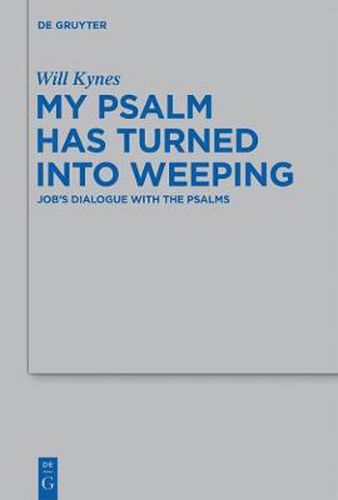Readings Newsletter
Become a Readings Member to make your shopping experience even easier.
Sign in or sign up for free!
You’re not far away from qualifying for FREE standard shipping within Australia
You’ve qualified for FREE standard shipping within Australia
The cart is loading…






This title is printed to order. This book may have been self-published. If so, we cannot guarantee the quality of the content. In the main most books will have gone through the editing process however some may not. We therefore suggest that you be aware of this before ordering this book. If in doubt check either the author or publisher’s details as we are unable to accept any returns unless they are faulty. Please contact us if you have any questions.
Drawing inspiration from the widely recognized parody of Ps 8:5 in Job 7:17-18, this study inquires whether other allusions to the Psalms might likewise contribute to the dialogue between Job, his friends, and God. An intertextual method that incorporates both diachronic and synchronic concerns is applied to the sections of Job and the Psalms in which the intertextual connections are the most pronounced, the Job dialogue and six psalms that fall into three broad categories: praise (8, 107), supplication (39, 139), and instruction (1, 73). In each case, Job’s dependence on the Psalms is determined to be the more likely explanation of the parallel, and, in most, allusions to the same psalm appear in the speeches of both Job and the friends. The contrasting uses to which they put these psalms reflect conflicting interpretive approaches and uncover latent tensions within them by capitalizing on their ambiguities. They also provide historical insight into the Psalms’ authority and developing views of retribution. The dialogue created between Job and these psalms indicates the concern the book has with the proper response to suffering and the role the interpretation of authoritative texts may play in that reaction.
$9.00 standard shipping within Australia
FREE standard shipping within Australia for orders over $100.00
Express & International shipping calculated at checkout
This title is printed to order. This book may have been self-published. If so, we cannot guarantee the quality of the content. In the main most books will have gone through the editing process however some may not. We therefore suggest that you be aware of this before ordering this book. If in doubt check either the author or publisher’s details as we are unable to accept any returns unless they are faulty. Please contact us if you have any questions.
Drawing inspiration from the widely recognized parody of Ps 8:5 in Job 7:17-18, this study inquires whether other allusions to the Psalms might likewise contribute to the dialogue between Job, his friends, and God. An intertextual method that incorporates both diachronic and synchronic concerns is applied to the sections of Job and the Psalms in which the intertextual connections are the most pronounced, the Job dialogue and six psalms that fall into three broad categories: praise (8, 107), supplication (39, 139), and instruction (1, 73). In each case, Job’s dependence on the Psalms is determined to be the more likely explanation of the parallel, and, in most, allusions to the same psalm appear in the speeches of both Job and the friends. The contrasting uses to which they put these psalms reflect conflicting interpretive approaches and uncover latent tensions within them by capitalizing on their ambiguities. They also provide historical insight into the Psalms’ authority and developing views of retribution. The dialogue created between Job and these psalms indicates the concern the book has with the proper response to suffering and the role the interpretation of authoritative texts may play in that reaction.